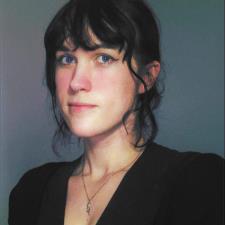
Huynh T.
asked • 08/07/22How could the bolded text be a question?
Class interests may incline us to believe one thing rather than another, some will say, but should not philosophy be above this? Should not philosophy be objective and impartial, and teach us to set class and party interests aside, and to seek only for the truth? For surely what is true is true, whether this suits some or other class interests or not?
[Maurice Cornforth, Materialism and Dialectical method]
How could the bolded text be a question? I don't know why it is a question, could you explain this to me?
Please paraphrase it!
Thanks
3 Answers By Expert Tutors

Juna P. answered • 08/08/22
Experienced Writing and Academic Skills Tutor
Hi Huynh,
I agree with Steve B. that this question is reflective, and I want to add some specifics on that.
This question has a strange structure because it's an argumentative tool. Cornforth's strange sentence structure is a style of writing (common in philosophy) that brings up something "common sense," some shared idea, in order to reflect, expand or argue on that point. Here, the shared knowledge he appeals to is "what is true is true," or "truth is truth."
For example:
"For surely what is true is true, whether this suits some or other class interests or not?"
Simplify it into a statement: Truth exists outside of class interests.
Put it back into a question: Does truth exist outside of class interests?
Since Cornforth is using this question as an argument, he doesn't ask a simple question like "Does truth exist outside of class interests?" Instead, he phrases it as an appeal---and "surely" is the important word here. In this case "surely" signals that argumentative core of the question.
When reading older texts like Cornforth's, it's important to establish context for sentences that are confusing. Reading around the difficult part sometimes helps you figure out what the author is doing, even if the specifics are confusing. Sometimes style, too, can be confusing, so breaking sentences down into basic pieces can help you get a handle on complicated structure.
I hope this helps you. Good luck!
Huynh T.
What a great answer! many thanks. Actually, Cornforth's style made me a little confused!08/08/22
Huynh T.
Does the questioner expect a confirmation from the person who are being asked?08/08/22

Juna P.
Thank you! And that's a good question --- I would say, in general, no. Like a rhetorical question, it seems to be an argumentative basis for a larger point. I don't know the surrounding context, but (being familiar with materialist philosophy) I assume he's using it as scaffolding (structure) for a more complicated argument (probably about class and truth).08/08/22

Steve B. answered • 08/07/22
Financial Literacy Coach
I would interpret the sentence in bold to be of significance in the paragraph. the summary of the paragraph's idea. It is a statement written as a question, left for discussion, much like philosophy itself. I would not interpret it to be a question like, what is 2 + 2? More, as in all of philosophy, phrased as a question to be conducive to reflection.
It is a question in the sense that it asks the reader; Is truth relative or absolute?
Cheers
Huynh T.
Thank you very much Steve B.!08/08/22
Raymond B. answered • 08/07/22
Math, microeconomics or criminal justice
The moon is made of green cheese? is a statement made into a question with a higher pitched voice said in a very sketpical tone at the end.
You can turn any statement into a question, when said in a questioning manner.
Someone says "I just ran a mile in 60 seconds" which is not physically possible, absent some weird situation, such as maybe a hurricane blowing you that fast as you run. So in response you skeptically say "You just ran a mile in 60 seconds?"
"Your mother is younger than you are?"
"No one died during the pandemic?"
"People are not starving during a famine?"
or
"People starved to death during the famine?" "Didn't they?"
Attorneys do something similar on cross examination, saying accusing things like:
These are your fingerprints on the murder weapon? Aren't they?
You have no alibi? Do you?
You were the last person to see the murder victim? Weren't you?
Truth is truth, regardless of the motive for saying it, don't you agree?
Huynh T.
I agree! thank you very much!08/08/22
Still looking for help? Get the right answer, fast.
Get a free answer to a quick problem.
Most questions answered within 4 hours.
OR
Choose an expert and meet online. No packages or subscriptions, pay only for the time you need.





Robert B.
11/20/22